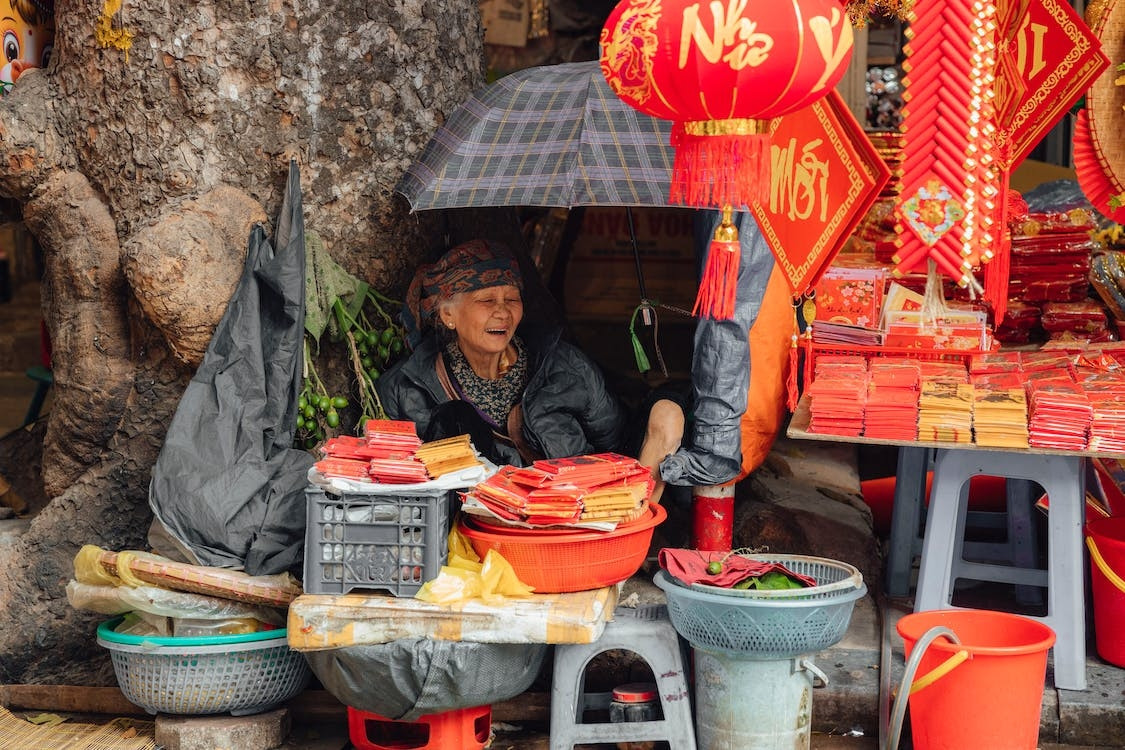The Vietnamese have several names for the last month of the lunar year: the twelfth lunar month, the twelfth month, and the month of vigilance.

Why is the twelfth month called the month of vigilance?
What does “vigilance” mean, and is it some kind of root vegetable like potatoes or cassava? Actually, “vigilance” is a Sino-Vietnamese word that means careful scrutiny.
The word “vigilance” is derived from the Chinese characters “củ” and “mật.” “Củ” means to examine or scrutinize (in ancient times, it was called “củ soát”), while “mật” means密
tight or close-fitting. Thus, “vigilance” conveys the idea of being cautious and thorough, leaving no room for error or loss.
Our ancestors referred to the twelfth month as the month of vigilance because it is the time of the year-end when one needs to be extra cautious to prevent theft, mistakes, or unfortunate events that could dampen the joy of the upcoming new year.
During the twelfth month, people tend to be tired and busy, making it easy to let their guard down. However, this is also the time when there are more valuables, money, and attractive possessions in homes, luring thieves to take advantage of the situation.
Apart from theft, another issue that requires vigilance is fire hazards. The dry winter weather, coupled with increased cooking and festive preparations, heightens the risk of fires. A small spark of negligence can lead to devastating consequences. Historically, there have been numerous incidents of house and market fires during the last days of the lunar year.
Thus, the month of vigilance emphasizes the need for caution, alertness, and tidiness to prevent mishaps that could have significant repercussions.
What does the twelfth month signify?
According to cultural researchers, the word “Chạp” is a variation of the word “Lạp” in Chinese. The ancient Chinese ritual of worshipping gods at the end of the year was called “Lạp,” hence the name “Lạp month” (with “month” being “nguyệt” in Chinese). When referring to “Lạp,” it implies the act of visiting and tending to ancestral graves in preparation for the Lunar New Year celebration.
In Chinese, “Lạp” also signifies the year-end reunion dinner, which is related to the aforementioned custom.
The twelfth month in Vietnam is filled with various rituals and offerings, leading to the phrase “giỗ Chạp.” Vietnamese people also attach great importance to tending to their ancestors’ graves during this month. By doing so, they ensure that the graves are well-maintained before inviting their ancestors’ spirits to join the family for the new year celebrations.
Another interpretation suggests that “Lạp” in Chinese also means meat. The last month of the year is when people stock up on food to brace for the harsh winter and the upcoming Lunar New Year festivities. Among the provisions, meat is considered a valuable and essential item. The “Lạp” in “lạp xưởng” (Chinese sausage) carries this same meaning.
According to VTC

Age-specific Ox Horoscopes for 2024

“We’re going home for the holidays, even if we have to spend all our savings”









































